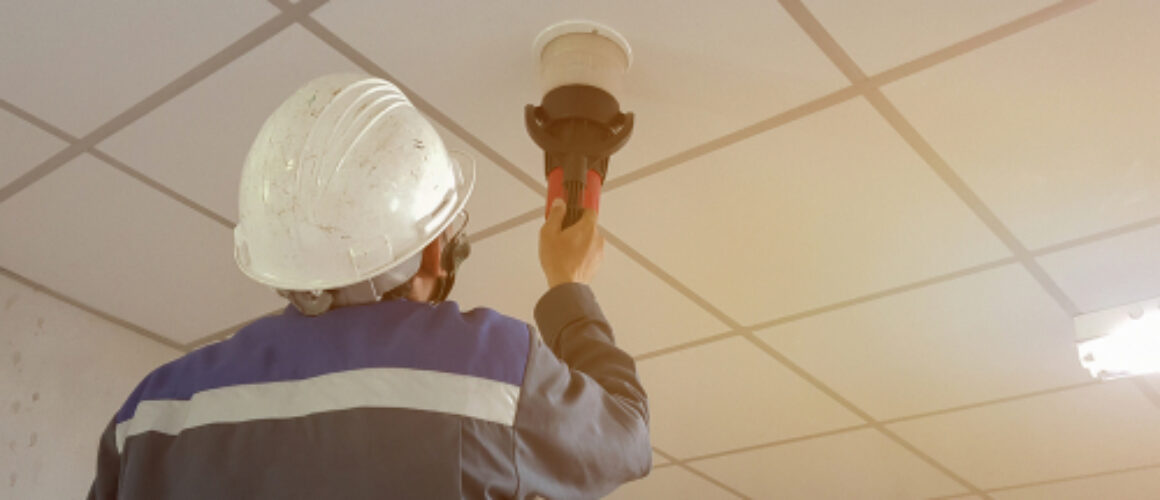The Lifespan of Fire Detection Systems: When to Upgrade Your Safety Measures
Fire detection systems are an essential component of any building’s safety measures. They play a critical role in protecting lives and property by alerting occupants to the presence of fire and enabling a timely response. However, like any technology, fire detection systems have a limited lifespan. Regular evaluation and upgrading of these systems are crucial to ensure their effectiveness and reliability. In this blog post, we will guide you through the typical lifespan of fire detection systems, signs that indicate it’s time for an upgrade, advancements in technology, and the importance of staying proactive to prevent potential risks.
Understanding the Lifespan of Fire Detection Systems
Fire detection systems are designed to detect the presence of smoke, heat, or flames and raise an alarm to notify occupants and authorities. The lifespan of these systems can vary depending on several factors, including the type of system, maintenance practices, and environmental conditions.
Factors Affecting Lifespan
- Type of Fire Detection System: There are various types of fire detection systems available in the market, including smoke detectors, heat detectors, and flame detectors. Each type has its own lifespan, with smoke detectors typically lasting 10-15 years, heat detectors lasting 15-20 years, and flame detectors lasting 7-10 years.
- Maintenance Practices: Regular maintenance and inspections are essential to ensure the optimal performance of fire detection systems. Proper cleaning, testing, and calibration can extend the lifespan of these systems. Neglecting maintenance can lead to false alarms or failure to detect fires, compromising the safety of the building.
- Environmental Conditions: The operating environment can impact the lifespan of fire detection systems. Harsh conditions such as extreme temperatures, humidity, or exposure to chemicals can accelerate wear and tear, reducing the system’s effectiveness. Regular evaluations are essential to identify any potential issues and address them promptly.
Signs That It’s Time for an Upgrade
As fire detection systems age, their reliability may diminish, increasing the risk of failure. It is important to be vigilant and watch out for signs that indicate the need for an upgrade. Here are some common indicators:
1. False Alarms or No Alarms
If your fire detection system frequently triggers false alarms or fails to raise an alarm during legitimate fire incidents, it may be a sign that your system needs an upgrade. False alarms can disrupt building operations and lead to complacency among occupants, while the failure to detect fires can have devastating consequences.
2. Outdated Technology
Advancements in fire detection technology have significantly improved the effectiveness and efficiency of these systems. If your fire detection system is outdated, it may lack features such as wireless connectivity, remote monitoring, or advanced detection algorithms. Upgrading to newer technology can enhance the safety and functionality of your system.
3. Inadequate Coverage
Over time, changes in building layouts or expansions may render your existing fire detection system inadequate. It is essential to reassess the coverage of your system regularly and ensure that all areas of the building are adequately protected. Upgrading your system can help address any coverage gaps and provide comprehensive protection.
Advancements in Fire Detection Technology
The field of fire detection technology has witnessed significant advancements in recent years. These innovations have not only improved the reliability and accuracy of fire detection systems but also introduced additional features that enhance their functionality. Here are some notable advancements:
1. Addressable Systems
Addressable fire detection systems allow for individual devices (such as detectors or alarms) to be uniquely identified on a network. This enables precise identification of the location of fire incidents, simplifying emergency response and reducing response times.
2. Integrated Systems
Modern fire detection systems can be integrated with other building management systems, such as HVAC or access control. This integration allows for centralised monitoring and control, streamlining operations and enhancing overall building safety.
3. Smart Detectors
Advanced fire detectors use intelligent algorithms and sensors to differentiate between potentially hazardous situations and false alarms. They can detect specific types of fires and provide early warning, allowing for timely evacuation and minimisation of damage.
Staying Proactive: The Importance of Regular Evaluations
To ensure the optimal performance of your fire detection system, regular evaluations and inspections are crucial. By staying proactive, you can identify any potential issues and take appropriate measures to address them. Here are some proactive steps you can take:
- Scheduled Inspections: Regularly schedule inspections by trained professionals to assess the condition of your fire detection system. They can identify any malfunctioning devices, outdated components, or maintenance requirements.
- Testing and Maintenance: Conduct periodic tests to ensure all devices are functioning correctly. Regular cleaning, battery replacements, and calibration should be performed as per manufacturer recommendations.
- Training and Awareness: Educate building occupants on fire safety protocols and the operation of fire detection systems. Conduct regular drills to familiarise everyone with evacuation procedures and the use of fire extinguishers.
- Stay Informed: Keep abreast of advancements in fire detection technology and industry regulations. Regularly review your fire safety plan and make necessary updates.
Conclusion
Fire detection systems are vital for the safety of any building, and their lifespan should not be taken for granted. By understanding the typical lifespan of these systems, recognising signs that indicate the need for an upgrade, and staying proactive with regular evaluations, you can ensure the effectiveness and reliability of your fire detection system. At Electrical Discounted Supplies, we are committed to providing the latest fire detection technology and expertise to help you safeguard your property and occupants. Remember, investing in fire safety is investing in peace of mind.




